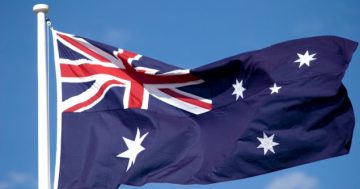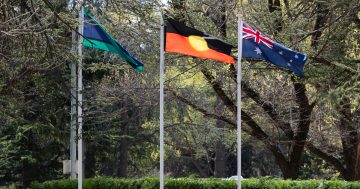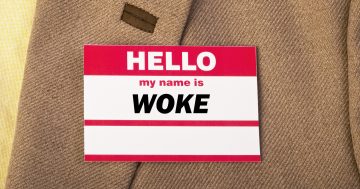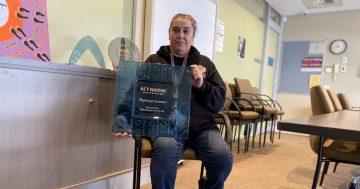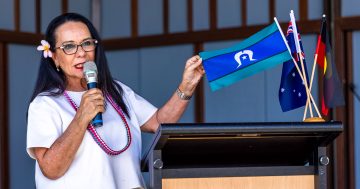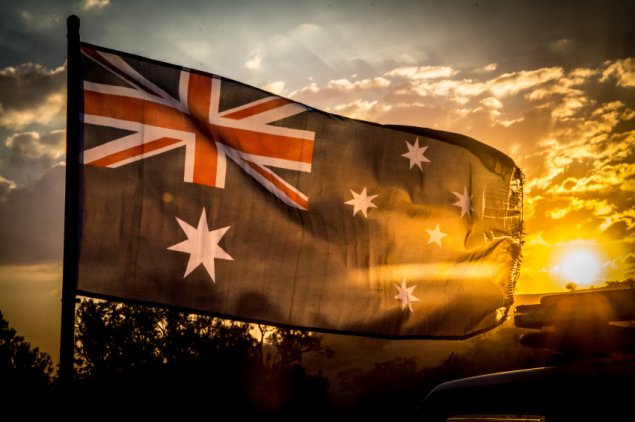
I took out Aussie citizenship when I was 20. Up till then it hadn’t occurred to me that there was any benefit to being a fully-fledged citizen when I could get all the benefits as a British subject, having been born in England and migrating out to Oz when I was three years old. I knew nothing British and was, for all intents, an Aussie.
So Aussie was I that my birthday was put in the National Service lottery. So you can see that as a young man, I didn’t think about it much. Well, my number didn’t come out of the barrel but full of patriotism and propaganda, I enlisted in the Army for the National Service of two years.
When I was posted to a field force unit, preparing to go to Vietnam, I thought well, I should really be an Australian citizen if I’m going to wear the uniform and fight for the country, so I applied. Luckily, the unit didn’t go overseas and I was spared the horror of Vietnam.
Then one day, a large envelope appeared in the mail. It contained my citizenship certificate and a form letter of congrats. A bit anti-climactic, if you ask me.
Fast forward to when I was minister for Multicultural Affairs and given the honour of bestowing Australian citizenship on people who had elected to become Aussies. (This was by far the best perk I ever had as a pollie.)
I saw the lights in the eyes of people who had newly arrived: some were refugees and successful asylum seekers; some had been here for decades and finally made the plunge; whole families from every part of the globe. It was amazing to see the raw pleasure in their eyes.
I welcomed them as part of our Aussie family and saw that this was for them one of the signature celebrations and ceremonies in their lives. It ranked for many up there with weddings, baptisms, christenings, bar mitzvahs, and significant birthdays and was only second to births of babies.
Everyone had a wonderful time and most of them partied on afterwards. Contrast that with my notification in the mail!
I told them to be proud of their heritage; not to lose that heritage, the language, the colour, the cuisine, the music and their very essence. I told them that Australia was enriched by the blending of cultures; that it is a welcoming country for anyone who wants to be an honest and hardworking part of our community and they pledged loyalty to Australia.
When I went home I was filled with joy, with that sweet feeling of patriotism and connectedness with my country, the country of my choice and not of my birth.
Then I ran into some of my Indigenous friends.
They weren’t celebrating at all. They were in mourning. They were mourning a lost world, a lost culture, a lost generation, a lost sense of connection with the land, a loss of proprietary ownership in the land of their ancestors.
They were remembering the stories of dispossession, of theft of kids, of disease and despair. They were remembering stories of struggle with white man’s plagues of alcohol, diet and disease. They were mourning the cleansing of their race.
What a juxtaposition we have created by having Australia Day on the anniversary of the arrival of the very people who until mid-last century didn’t think of our first peoples as people at all. Any scratch of history in this country, despite its denial by significant Australians, will reveal the race wars of the 19th century, the annihilation of the first peoples in Tasmania, the ridding of the first peoples in New South Wales and Queensland and the treatment of all Indigenous people in all states and territories ever since, culminating with the Stolen Generations and the Black Deaths in Custody reports.
I’m not going to go into a duel of stats at 50 paces; I’m not going to enter into debate on whether Australia is the better for its development since 1788; I’m not going to debate the issues of dispossessing and theft; and, I’m not going to spar on the attempts by some to do hideous things to Indigenous people in the name of rescuing them.
I just want people to stop and think for a minute on whether it is appropriate to celebrate when someone is in mourning.
How would we like it if someone decided to have an engagement party at Norwood Park when we were farewelling a beloved relative? How would we like it if someone had a birthday party at Gungahlin Cemetery when we were visiting the grave of a child?
My own level of emotional confusion gave me cause to think each and every Australia Day.
I want to celebrate being an Aussie; I want to share in the joy of others who have chosen Australia as their home, as their sanctuary; I want to share in the notion of patriotism and I want to have a happy time on Australia Day.
I also want to acknowledge that it was my British people that conquered this land; I want to apologise to the First Peoples for the theft of kids in the Stolen Generation; I want to apologise for the disproportion of Indigenous kids in juvenile detention and disproportionate representation in adult corrections institutions; I want to apologise for the state of Indigenous health and education; I want to seek their forgiveness for the world we force them to live in and I want to seek their forgiveness sometimes just for me being here at all.
But I also want to know more about my fellow Australian citizens, the first peoples; I want to know their stories, their songs, their rituals (if they are comfortable with that); I want to know what makes them smile and laugh; and what they see as important in their lives.
I have asked the many migrant families who received citizenship from me (on behalf of the Commonwealth Government) those very same things. And once a year they all come together in the National Multicultural Festival and answer my very questions.
How about a real First Peoples’ Day in its own right? How about we ask the Indigenous people of Australia, disparate as they are, when would be a good time? NAIDOC is a good start. How about we white guys start thinking of NAIDOC in the same way as Australia Day? And how about moving the Australia Day away from the anniversary of the invasion?












